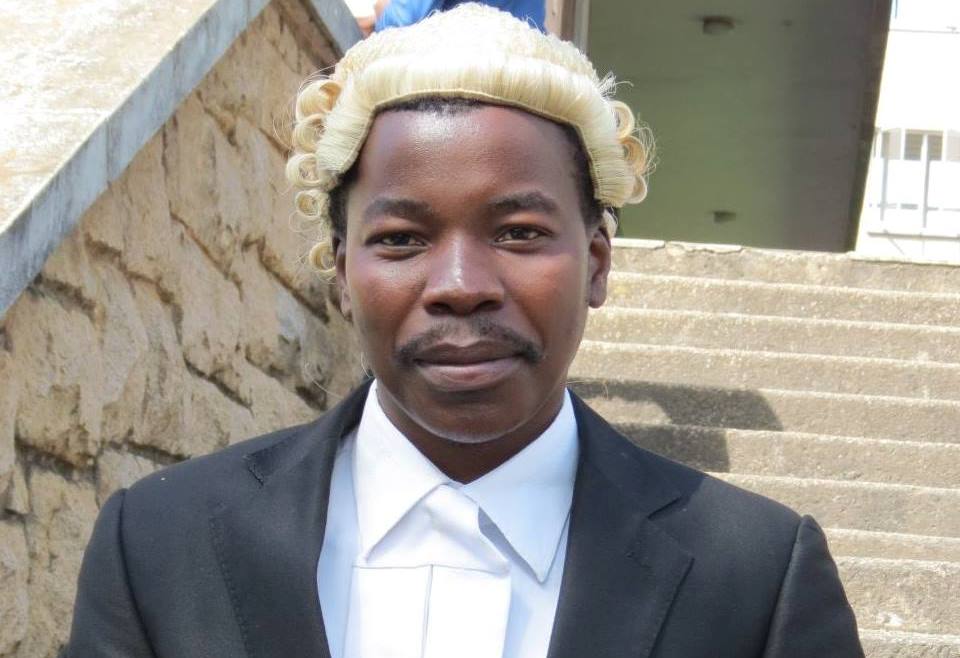Colonial laws hurt democracy
Police continue to arrest journalists and citizens using archaic colonial laws that ban perceived insults against the President. Our Staff Writer JOHN CHIRWA caught up with lawyer Mayamiko Madula, who has researched on insult laws in democratic Malawi, to understand how such detentions hurt a culture of democracy.

How important is freedom of expression and media freedom?
Freedom of expression and media freedom are the lifeblood essence of free societyas well as lifeblood for democracy. Freedom of expression is the medium that enables people to participate in decision-making and public affairs in their countries. Most importantly, through the two freedoms, individuals and media are allowed to exercise public scrutiny over public and political affairs as well as ensuring accountability of public functionaries. These freedoms accord governors an opportunity to learn from voices of reason and criticisms from the populace.
Is freedom of expression and media freedom absolute?
No. While two freedoms are pivotal in democracy, they are not absolute. Consequently, they can be limited provided that such limitations meet the test stipulated in Section 44 of the Constitution. To lay the point bare, freedom of expression and freedom of the press can be limited provided that such limitations are prescribed by law, reasonable of general application, necessary in an open democracy, in line with international human rights standards and do not negate the essential content of the right.
We have seen the State using insult laws to stifle press freedom and freedom of expression. What are these insult laws?
The Table Mountain Declaration defines insult laws as laws that criminalise insulting conduct, especially where such conduct relates to public functionaries. The general rationale is thus the protection of the honour and dignity of holders of specific government offices, institutions, national symbols and emblems from oral and written expressions that can offend them. In Malawi, insult laws are contained in a number of laws such as the Protected Flags, Emblems and Names Act as well as the Penal Code. With regards to insult laws, Section Four of the Protected Flags, Emblems and Names Act is the crux while Section Four of the Penal Code creates the offence of sedition. The State has used these laws in many ways to stifle press freedom and freedom of expression. History is replete with examples where the State actors have used insult laws to pounce or crackdown opposition leaders, journalists and critical citizens. Pursuant to insult laws, individuals from all sectors of society have been subjected to various forms of atrocities ranging from detentions without trials, torture, amongst others.
How does the use of insult laws affect Malawi democracy?
It is an affront because people are afraid to express themselves. People will be afraid to air their views for fear of being arrested. Such laws gag free speech and inhibit robust open discussion which is a key feature of democracy. The use of insult laws by State institutions and public officials pose a serious threat to the enjoyment of freedom of expression as these laws have been subject to abuse by the State to insulate themselves from scrutiny and criticism by the public and the media. Public functionaries are involved in devising and implementing public policy and will inevitably be at the centre of public debate, they therefore should display a greater degree of tolerance for criticism.
How relevant is it to safeguard the President from what people say about him and his governance style in our democracy?
Safeguarding the integrity of the head of State through insult laws will deter many quarters of the society from criticising the government, let alone participating in making decisions that affect them. Furthermore, this is greatly irrelevant in a modern democratic governance setup, which is founded upon key principles. These include rule of law, tolerating dissenting views, participatory decision-making and free press. These cannot be actualised if individuals are suppressed and are prevented from airing out their views to safeguard the integrity of the head of State.
How best should the country handle the said insult laws?
Insult laws spelt out in Section Four of the Protected Flags, Emblems and Names Act do not augur well with our democratic ideals, and that to that end, I would propose that they must be repealed. This will ensure that individuals express their views without fear of torture, detentions, and imprisonment. What is important to note is that the President can still get legal redress if he feels that somebody’s exercise of freedom of expression has offended him. For example, the President can sue in tort for defamation. You see, it is also interesting to note that these insult laws are colonial era laws, they are thus outdated. The Protected Flags, Emblems and Names Act was enacted in 1967, during the one party non-democratic rule which was characterised by various atrocities on human rights, ranging from torture, detentions without trials, and imprisonment. It is thus ironical to see our post-colonial governments failing to take any measures to review or repeal these laws to ensure that they comply with the new libel constitution which guarantees fundamental rights and freedoms, founded upon a number of principles; namely, power as trust, respect for rule of law. n






One Comment